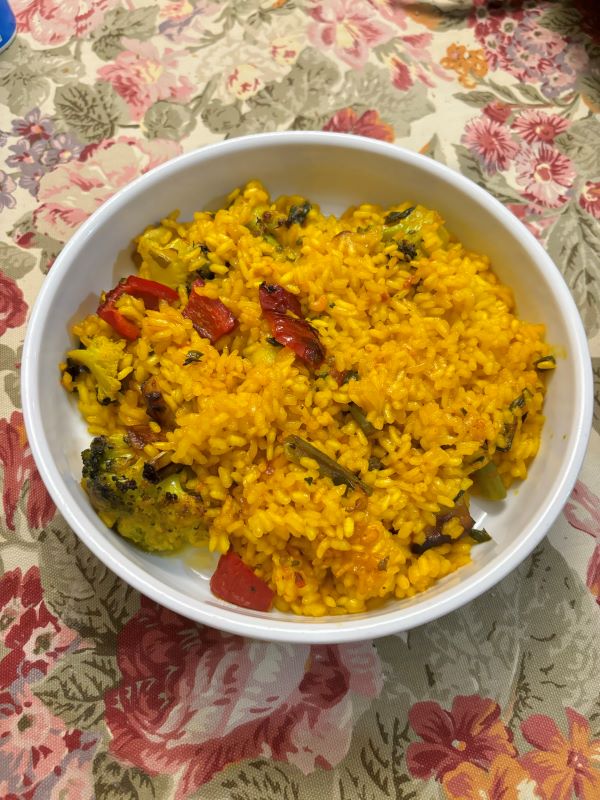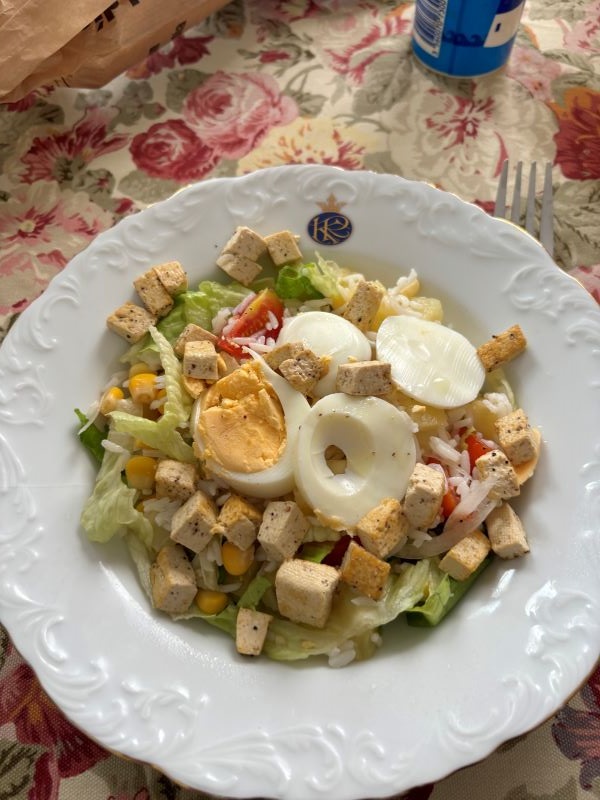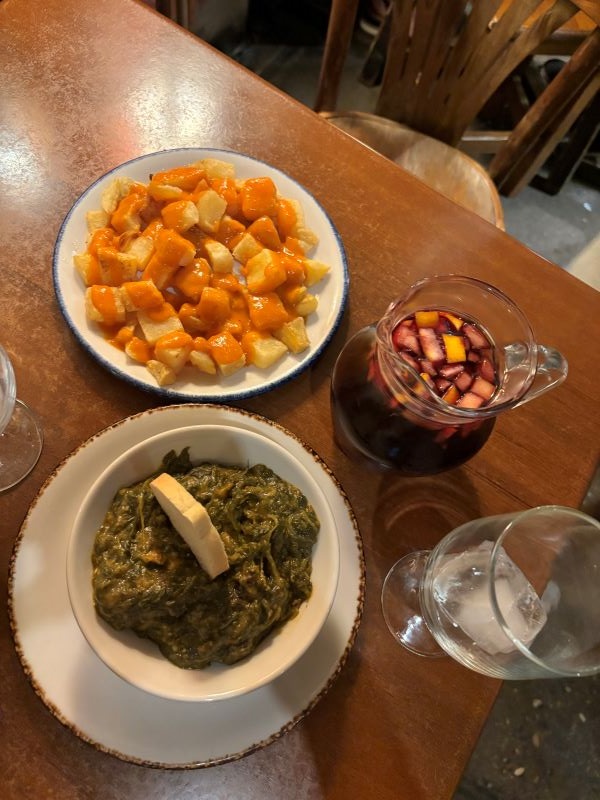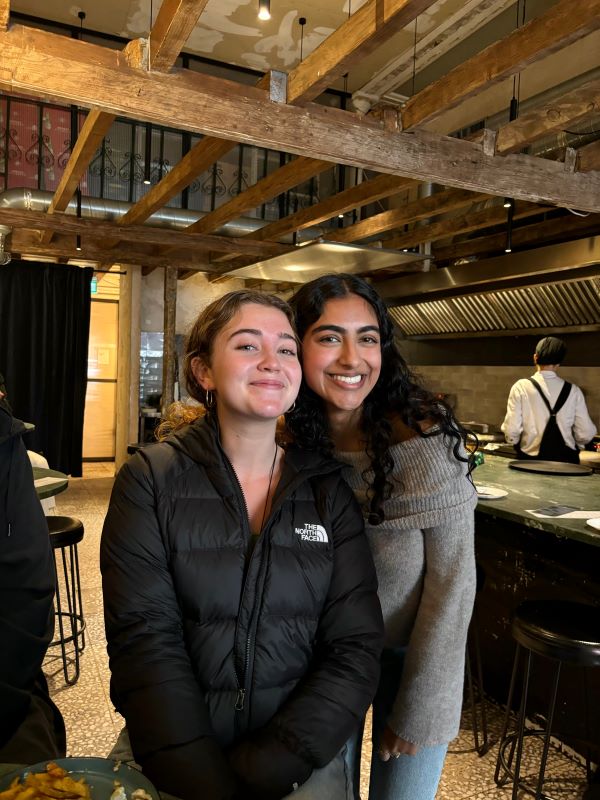Being Vegetarian in the Land of Ham: My Study Abroad in Spain
When I told people I’d be studying abroad in Seville, the reactions were pretty consistent: “You’re going to love the food!” And I get it. Spain is known for its bold flavors and social meals that stretch into the evening. But as a vegetarian, I couldn’t help but feel a little nervous, especially since the local cuisine revolved around jamón, chorizo, and more jamón.
Now that I’ve lived in a Casa de Sevilla, navigated tapas menus, and learned the vegetarian lingo, I can say this: being vegetarian in Spain is absolutely possible, and even enjoyable! You just have to know where (and how) to look.
Pre-Departure Fears
I remember the moment I got my housing assignment and saw the words: Casa de Seville, no access to the kitchen. As someone who likes to cook my own meals, the idea of having no control over my meals was... a lot. I wasn’t just worried about being hungry—I was worried about being a burden. Would my host mom think I was picky? What if all I had to eat was bread?
In hindsight, those fears were rooted in something bigger—stepping into a completely new environment where I wasn’t sure I’d fit in. But what I didn’t know yet was my host mom was going to make me feel more welcome at her table than I ever imagined

My roommates and I in our Casa de Seville sharing our first dinner together: stuffed zucchini and Spanish tortilla
Vegetarian Meals in my Casa de Seville
From the moment I arrived, my house mom Lola made me feel at home. One of the first things she did was sit me down with a notepad and pen to ask about my dietary restrictions, what I could eat, what I liked, and even what I normally ate back home.
My first dinner was fully vegetarian for everyone: stuffed zucchini and a traditional Spanish tortilla. Lola always made sure I had something delicious to eat. If she made a dish with meat, she’d either set aside a portion for me beforehand (like paella without the meat) or whip up something separate, like tofu for taco night while others had ground beef. Lunches were usually pasta, soup, or salad, with the meat always served on the side or separated. All of the soups were vegetarian, and her salads were beautifully simple and fresh. I never once felt like an afterthought—her food was genuinely delicious, and I always had more than enough.
After every meal, she’d ask, “¿Te ha gustado?” and “¿Quieres más?”—always making sure we were full and happy. It was a consistent reminder that I was welcome and looked after. It also revealed something beautiful about Spanish hospitality—how food is not just a tradition, but a way of showing care and sharing culture across differences.

Vegetarian paella my house mom Lola made for me
Realities of Eating Out
Let’s be real. Spain loves its meat. You’ll see it hanging from the ceilings of tapas bars and woven into every traditional dish. Some restaurant menus list “salad with tuna” as a vegetarian option. I remember my disappointment when I learned the “vegetable paella” had meat in it. There were definitely moments when I felt a little limited, especially during group outings when it seemed like everyone was eating meat.
But every challenge became an opportunity to connect: to explain my values, to learn how locals approach food, and to find common ground. Over time, I figured out how to navigate menus, ask the right questions, and find veggie-friendly gems hidden throughout the city.

A typical lunch in our casa: salad with an olive oil dressing and bread
Navigating Social Settings Without Feeling Left Out
One of the trickiest parts of being vegetarian in Spain wasn’t the food itself, but the social experience around it. Tapas aren’t just a way of serving food, but a way of connecting around sharing plates. And when most of those plates weren’t vegetarian, I worried I’d miss out.
So, I found small ways to stay involved: splitting veggie-friendly dishes, suggesting inclusive spots I knew had options for me, and learning to speak up. I realized the connection doesn’t come from eating the same thing, but from sharing the moment through conversation, laughter, and the simple act of showing up for one another around the table.

Two of my favorite traditional Spanish tapas: patatas bravas and espinacas con garbanzos
Advice for Future Vegetarians Abroad
If you’re vegetarian and worried about studying abroad, don’t let that stop you. Yes, there will be moments of uncertainty, but there will also be moments of joy, like when your host mom learns to make tofu, or when you find the perfect vegetarian empanada.
Here are a few tips that saved me:
Tapas are your friend! Although it may not seem like it at first, there are traditional tapas that happen to be vegetarian.
Learn a few key phrases. “¿Tiene algo sin carne? (Do you have something without meat?)” and “Soy vegetariana/o (I’m vegetarian)” go a long way.
- Ask, even if it feels awkward. Most people were willing to help once I explained.
- Do your research! There are plenty of vegetarian and even vegan-friendly places tucked away (veggiesabroad.com has some great recommendations)!

Me and my friend at one of our favorite vegetarian-friendly restaurants—”Fatouch!”
Final Thoughts
One thing I learned is that even if people don’t fully understand why you eat a certain way, Spanish hospitality will almost always try to meet you where you are. My host mom didn’t bat an eye when I said I was vegetarian—she asked questions and adjusted. That openness taught me that being honest about my needs wasn’t an inconvenience. It was the start of a conversation.
I tried so many traditional foods, even if it was the vegetarian version:
Espinacas con garbanzos
Tortilla
Patatas bravas
Paella
Lentejas
Croquetas
Pimientos de padrón
Pan con tomate
Fabada
…And more. I learned food doesn’t have to look the same to be shared. It also made me reflect on how for me, being vegetarian isn’t just a habit; it’s part of who I am. And in Spain, I found new ways to honor that while still engaging deeply with another culture. Overall, being a vegetarian in Spain was not only manageable, but a genuinely rewarding experience. To any students with dietary restrictions who are thinking of studying abroad in Seville, I’d absolutely recommend it without any hesitation. You are in for a treat!
This post was written by Shayla Modi, a CEA CAPA Alumni Ambassador from the University of Miami, who studied abroad in Seville, Spain.











